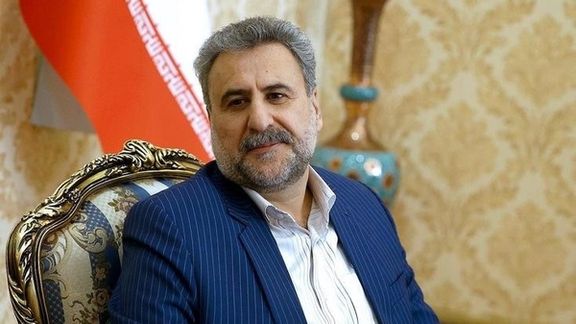The View From Tehran On Tensions With The US

While concern grows among pundits in Tehran concerning a possible military conflict with the United States, opinions differ about its likelihood.

While concern grows among pundits in Tehran concerning a possible military conflict with the United States, opinions differ about its likelihood.
The former head of the Iranian Parliament's Foreign Relations and National Security Committee anticipates a war in the region with Iran and the US as key players, while Iran's former Ambassador to Norway says the probability of a war between Iran and the United States is very low."
Former lawmaker Heshmatollah Falahatpisheh, who is currently teaching international relations at the Tehran University expressed in a January 15 tweet, "There is an unprecedented war looming ahead, unlike anything since World War II. After numerous fruitless visits to Oman [to finalize a nuclear deal], the most practical solution for both Iran and the United States is to return to the negotiation table in Oman."
However, he noted that the efforts in Oman have been practically abandoned, and diplomats find themselves idle in a region embroiled in conflict.

Quoting the tweet on the following day, centrist website Entekhab quoted the former lawmaker as also having said that: "If a war breaks out within the next two years, the US is not the only player who will be in control. Despite the 'maximum pressures' Iran is likely to have more manoeuvrability."
He also noted that the Iran-led Resistance Front knows that current developments are not moving in a direction that would serve its interests. Falahatpisheh made the comments after the strikes on a Hamas leader in Lebanon and US strikes on Houthis in Yemen. He said that developments in the region are generally going ahead in the direction envisaged by Israeli Prime Minister Benjamin Netanyahu and “other Israeli radicals.”
Meanwhile, another Iranian pundit, former diplomat Abdolreza Faraji Rad, who currently teaches geopolitics at Iranian universities, says : "The probability of a war between Iran and the United States is too small, unless a strange development occurs."
He asserted that Netanyahu desires a war between Iran and the United States to serve as the final chapter in the ongoing regional conflict. Falahatpisheh also noted two indicators suggesting an increasing likelihood of implementing Netanyahu's idea. First, there is a resurgence of maximum pressure on Iran. Biden had previously abandoned this approach, but he has now returned to it, with the additional goal of targeting Iran's regional allies. Falahatpisheh remarked, "Given these circumstances, Iran might consider a limited war with the US more preferable than enduring maximum pressure."
Nonetheless, Iran’s former ambassador to Norway Abdolreza Farajirad agreed with Falahatpisheh that Israel has been working hard for three months now to bring about a confrontation between Iran and the United States. Israel still hopes to drag Iran into the tension prevailing between the Houthis and the US in the Red Sea.
He added that the escalation of war in the region and attacks on the forces close to Iran as well as the strikes on Iranian commanders [in Syria] have increased the possibility of a military confrontation between Iran and the United States although both sides have officially declared that they do not intend to get involved in a war with the other side.
Farajirad further mentioned that support for Israel has weakened Biden's position in the US elections and therefore, he is not interested in a war in an election year. As a result, unless something exceptional occurs, there is very little chance of a war between Iran and the United States under the current circumstances.